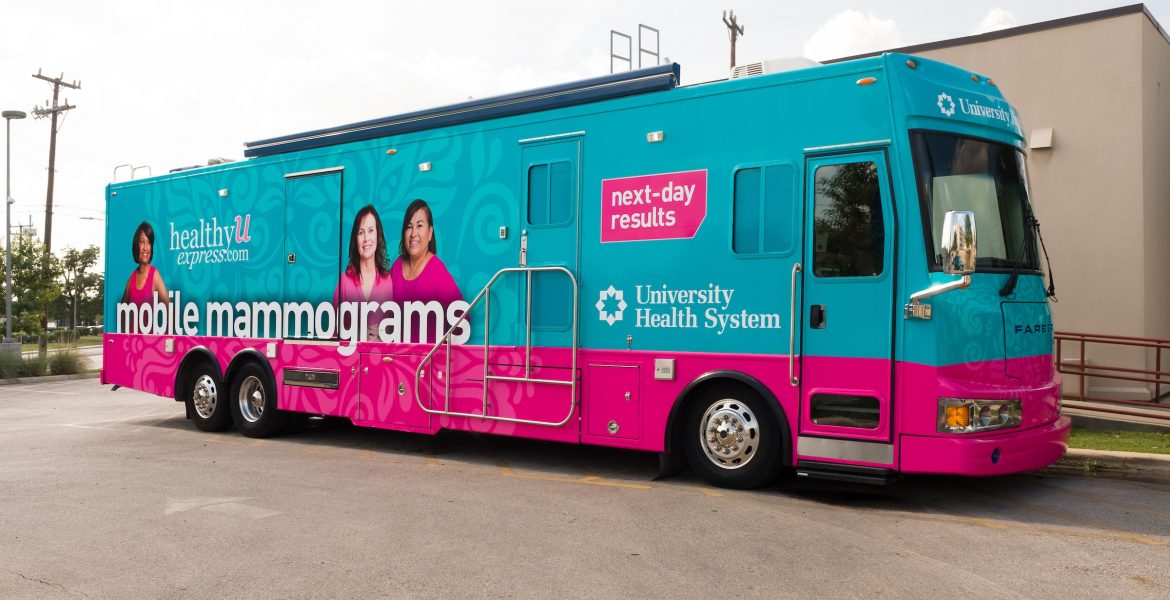Texas A&M University-San Antonio and University Hospital partnered to bring a mammogram mobile to campus on Oct. 24 to conduct mammogram screenings.
According to the Texas Department of State Health Services, 19,921 women in Texas will be diagnosed with breast cancer in 2022. It is the most diagnosed cancer among women in Texas and the second leading cause of cancer death.
The screening vehicle parked on the side of the Science and Technology Building from 8:30 a.m.-4 p.m. According to the schedule, 16 people used the service.
Breast cancer screenings are recommended by health care providers to catch any signs or symptoms of the disease. A mammogram is a screening that includes an x-ray picture of the breast to detect cancer in its early stages. Results usually come in a few weeks later.
Dr. Leo Lopez, a primary care physician for University Hospital, said the mammogram is a tool University Hospital uses to identify cancer in early stages. It is recommended to have one done every one or two years after turning 50.
“We want these tools to be able to identify so we can get treatment started early and ultimately save lives,” Lopez said. “Self exams have not demonstrated the ability to reduce our risk of dying of breast cancer as the mammogram has.”
Are you Dense? is a nonprofit organization that educates the public about breast health, including the impact of dense breast tissue, which they report is one of the strongest predictors of the failure of a mammography screening.
According to the CDC, having dense breast tissue could make it hard to tell the difference between a tumor and dense breast tissue on a mammogram; a small tumor may be missed.
University Hospital recommends those interested in mobile screening to be 40 years old or older, to not have had a mammogram within the past 12 months, to not be pregnant or breastfeeding, to have no personal history of breast cancer and to have no unusual breast symptoms, such as a lump.
Registration is available through University Health.






